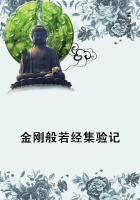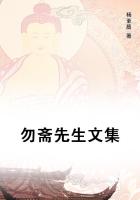--pity almost that a Friedrich Wilhelm, taking his rounds at that point of time, had not had the "refuting" of him; Friedrich Wilhelm's method would have been briefer than Friedrich's! But let us hope the thing is now, practically, about completed. And as to the other question, "Was the Signor Nicolo serious in this perverse little Book; or did he only do it ironically, with a serious inverse purpose?" we will leave that to be decided, any time convenient, by people who are much at leisure in the world!--The printing of the ANTI-MACHIAVEL was not intrinsically momentous in Friedrich's history; yet it might as well have been dispensed with. He had here drawn a fine program, and needlessly placarded it for the street populations: and afterwards there rose, as could not fail on their part, comparison between program and performance; scornful cry, chiefly from men of weak judgment, "Is this King an ANTI-Machiavel, then? Pfui!" Of which,--though Voltaire's voice, too, was heard in it, in angry moments,--we shall say nothing: the reader, looking for himself, will judge by and by. And herewith enough of the ANTI-MACHIAVEL. Composition of ANTI-MACHIAVEL and speculation of the Pine HENRIADE lasted, both of them, all through this Year 1739, and farther: from these two items, not to mention any other, readers can figure sufficiently how literary a year it was.
FRIEDRICH IN PREUSSEN AGAIN; AT THE STUD OF TRAKEHNEN.
A TRAGICALLY GREAT EVENT COMING ON.
In July this year the Crown-Prince went with Papa on the Prussian Review-journey. ["Set out, 7th July" (<italic> OEuvres, <end italic> xxvii. part lst, 67 n.).] Such attendance on Review-journeys, a mark of his being well with Papa, is now becoming usual; they are agreeable excursions, and cannot but be instructive as well. On this occasion, things went beautifully with him. Out in those grassy Countries, in the bright Summer, once more he had an unusually fine time;--and two very special pleasures befell him. First was, a sight of the Emigrants, our Salzburgers and other, in their flourishing condition, over in Lithuania yonder. Delightful to see how the waste is blossoming up again; busy men, with their industries, their steady pious husbandries, ****** all things green and fruitful: horse-droves, cattle-herds, waving cornfields;--a very "SCHMALZGRUBE (Butter-pit)" of those Northern parts, as it is since called. [Busching, Erdbeschreibung, ii. 1049.] The Crown-Prince's own words on this matter we will give; they are in a Letter of his to Voltaire, perhaps already known to some readers;--and we can observe he writes rather copiously from those localities at present, and in a cheerful humor with everybody.
"INSTERBURG, 27th JULY, 1739 (Crown-Prince to Voltaire). ...
Prussian Lithuania is a Country a hundred and twenty miles long, by from sixty to forty broad; ["Miles ENGLISH," we always mean, UNLESS &c.] it was ravaged by Pestilence at the beginning of this Century; and they say three hundred thousand people died of disease and famine." Ravaged by Pestilence and the neglect of King Friedrich I.; till my Father, once his hands were free, made personal survey of it, and took it up, in earnest.
"Since that time," say twenty years ago, "there is no expense that the King has been afraid of, in order to succeed in his salutary views. He made, in the first place, regulations full of wisdom;he rebuilt wherever the Pestilence had desolated: thousands of families, from the ends of Europe," seventeen thousand Salzburgers for the last item, "were conducted hither; the Country repeopled itself; trade began to flourish again;--and now, in these fertile regions, abundance reigns more than it ever did.
"There are above half a million of inhabitants in Lithuania;there are more towns than there ever were, more flocks than formerly, more wealth and more productiveness than in any other part of Germany. And all this that I tell you of is due to the King alone: who not only gave the orders, but superintended the execution of them; it was he that devised the plans, and himself got them carried to fulfilment; and spared neither care nor pains, nor immense expenditures, nor promises nor recompenses, to secure happiness and life to this half-million of thinking beings, who owe to him alone that they have possessions and felicity in the world.
"I hope this detail does not weary you. I depend on your humanity extending itself to your Lithuanian brethren, as well as to your French, English, German, or other,--all the more as, to my great astonishment, I passed through villages where you hear nothing spoken but French.--I have found something so heroic, in the generous and laborious way in which the King addressed himself to ****** this desert flourish with inhabitants and happy industries and fruits, that it seemed to me you would feel the same sentiments in learning the circumstances of such a re-establishment.
"I daily expect news of you from Enghien [in those Dutch-Lawsuit Countries]. ... The divine Emilie; ... the Duke [D'Aremberg, Austrian Soldier, of convivial turn,--remote Welsh-Uncle to a certain little Prince de Ligne, now spinning tops in those parts;[Born 23d May, 1735, this latter little Prince; lasted till 13th December, 1814 ("DANSE, MAIS IL NE MARCHE PAS").] not otherwise interesting], whom Apollo contends for against Bacchues. ...
Adieu. NE M'OUBLIEZ PAS, MON CHER AMI." [<italic> OEuvres, <end italic> xxi. 304, 305.]
This is one pleasant scene, to the Crown-Prince and us, in those grassy localities. And now we have to mention that, about a fortnight later, at Konigsberg one day, in reference to a certain Royal Stud or Horse-breeding Establishment in those same Lithuanian regions, there had a still livelier satisfaction happened him; satisfaction of a personal and filial nature.














